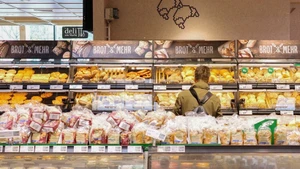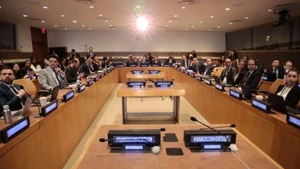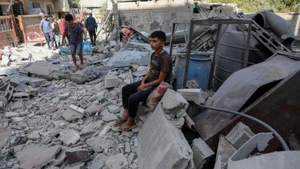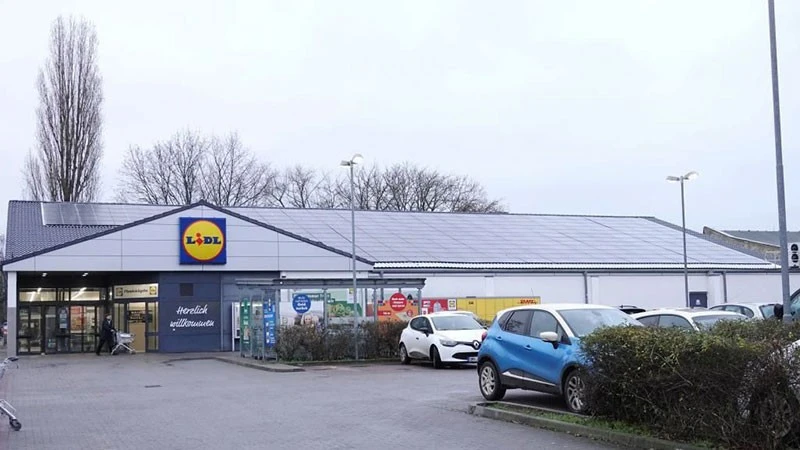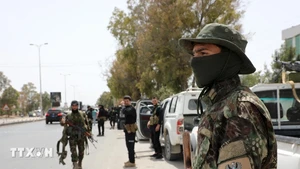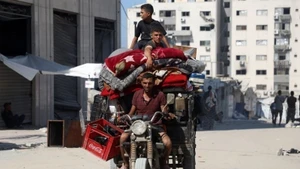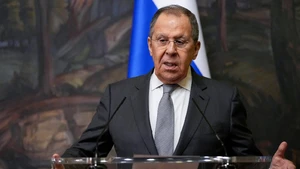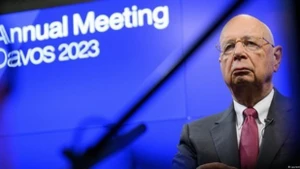Escalating violence
Haiti fell into serious instability after criminal gangs attacked a major prison and released 3,597 prisoners in the first week of March. This is where nearly 4,000 people are detained in a space for 800-1,300 prisoners.
Haiti’s national prison not only holds the country’s most notorious criminals but also holds several Colombians accused of murdering the late Haitian President Jovenel Moise. Shootings by criminal gangs continue in Haiti’s capital Port-au-Prince, especially around the airport. Gang violence in the capital Port-au-Prince is spreading at an alarming rate in areas that were previously considered relatively safe. Heavily armed criminals have attacked key infrastructure such as ports and police stations and taken control of highways leading into the capital.
Meanwhile, Haitian Prime Minister Ariel Henry has yet to return home after he went to Guyana to attend the Caribbean Community (CARICOM) Summit and then to Kenya to promote efforts calling for multinational security forces to Haiti.
Previously, the Haitian Government committed to holding elections before August 31, 2025. Prime Minister Henry, who was appointed to replace his predecessor Claude Joseph a few days before President Jovenel Moise was assassinated on July 7, 2021, also pledged to play an intermediary role and share power.
According to the signed political agreement, Haiti will hold elections, and Prime Minister Henry will transfer power to the elected official before February 7, 2024. However, Henry postponed the election indefinitely because it was necessary to re-establish security to ensure a free and fair election in the context of criminal gangs armed with heavy weapons, increasing activity since the assassination of President Moise. Prime Minister Henry has sought support from abroad to deal with gang violence.
Escalating instability in Haiti has regional countries worried that it could negatively impact regional security. Wary of the deteriorating situation in neighbouring Haiti, the President of the Dominican Republic, Luis Abinader, ordered strengthening of security in border areas and maintaining order in the country.
Meanwhile, the Bahamas has activated a campaign to blockade the southeastern border of the island nation with a large deployment of air, sea and land vehicles due to fears of thousands of Haitian prisoners escaping from prison and entering the country.
Head of the Royal Bahamas Defense Force (RBDF) Raymond King said that the country plans to exchange intelligence information and cooperate with the US and Cuba and declared its readiness to deny or intercept any boat from Haiti.
Mexico advises citizens not to go to Haiti and advises Mexicans here to stock up on water, food, and fuel and not go out unnecessarily. The US, France, Canada and Spain have temporarily closed their embassies in Haiti, cancelled all meetings and issued similar recommendations to their citizens.
Regional security threatened
The United Nations warns that drug crimes and illegal arms trafficking are increasing in Central American and Caribbean countries, which are seriously affecting the stability and security of the region. According to the International Narcotics Control Board (INCB), Haiti has become a transit point for the trafficking of drugs, including cocaine and marijuana, towards the Dominican Republic, America and Western Europe. The Central America and Caribbean regions currently experience high levels of armed violence and unrest, often linked to the activities of criminal street and drug gangs. Citing many recent studies, INBC emphasised that Central America and the Caribbean are drug transit areas. Many routes of South American drug gangs pass through countries in Central America and the Caribbean. This is the place with the highest gun murder rate in the world.
In the first three months of 2023, the number of crimes, including murder, rape, kidnapping and torture, has doubled compared to the same period in 2022, and about 80% of Haiti’s cities are now under the control of armed groups. This worrying development is accompanied by an increase in trafficking of large-calibre guns and ammunition to Haiti by land, air and sea. This is said to be the factor driving the wave of migration from this area. Last year, about 2.6 million Latin American and Caribbean nationals applied for asylum, accounting for more than 40% of all applications globally.
Faced with a new wave of violence in Haiti, United Nations Secretary-General Antonio Guterres called for the need to act urgently, especially providing financial support for a multinational security mission led by the United Nations in this Caribbean country.
Guterres urged finding a political solution to the crisis in Haiti. CELAC’s 33 member states also issued a statement emphasising that the current crisis requires a Haitian-led solution, including a broad dialogue between political activists. CELAC also recognises the role of countries and organisations in the region in supporting political dialogue between the government and the different political parties and institutions of Haitian society to chart a roadmap to overcome the current crisis.
CELAC member states, including Haiti, call for the quick and effective implementation of United Nations Security Council resolution 2699 (2023) and stress the importance of establishing necessary security conditions in Haiti to hold free and fair elections. Meanwhile, five countries, including the Bahamas, Bangladesh, Barbados, Benin and Chad, have committed to contributing human resources to the International Security Assistance Force to help Haiti deal with gang violence.
White House National Security Council spokesman John Kirby said senior US officials remain in close contact with their counterparts in this Caribbean country as well as many members of the international community to help stabilise the situation and quickly move toward a lasting political solution. According to Kirby, the United States is working with international allies to accelerate support for the Haitian national police, as well as speeding up the deployment of a multinational security assistance mission led by the United Nations Security Council, directed and led by Kenya.


